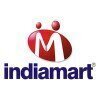

Link Group



10+ Link Group Interview Questions and Answers
Q1. Explain Solid Principles and Where to use this with Example
Solid Principles are a set of design principles for writing maintainable and scalable software.
Solid Principles consist of five principles: Single Responsibility Principle, Open/Closed Principle, Liskov Substitution Principle, Interface Segregation Principle, and Dependency Inversion Principle.
Single Responsibility Principle states that a class should have only one reason to change.
Open/Closed Principle states that software entities should be open for extension but closed for...read more

Q2. what is primary & secondary market, types of corporate actions with example
Primary market is where new securities are issued, while secondary market is where existing securities are traded.
Primary market involves the issuance of new securities by companies to raise capital, while secondary market involves the trading of existing securities among investors.
Types of corporate actions include stock splits, dividends, mergers and acquisitions, and spin-offs.
Stock split is when a company increases the number of shares outstanding by issuing more shares t...read more

Q3. What is management fees and Performance fees.
Management fees are fees paid by investors to the fund manager for managing the fund's investments. Performance fees are fees paid based on the fund's performance.
Management fees are typically calculated as a percentage of the fund's assets under management.
Performance fees are usually calculated as a percentage of the fund's profits above a certain benchmark.
Management fees are paid regardless of the fund's performance, while performance fees are contingent on the fund outpe...read more

Q4. Tell me about Derivatives in full details.
Derivatives are financial instruments whose value is derived from an underlying asset or group of assets.
Derivatives can be used for hedging, speculation, or arbitrage.
Common types of derivatives include options, futures, forwards, and swaps.
Options give the holder the right, but not the obligation, to buy or sell an asset at a specified price before a certain date.
Futures are contracts to buy or sell an asset at a future date for a price agreed upon today.
Forwards are simila...read more

Q5. Abstraction and Interface Differance
Abstraction focuses on hiding implementation details, while interface defines a contract for classes to follow.
Abstraction allows us to focus on the essential features of an object, while hiding unnecessary details.
Interface defines a set of methods that a class must implement, providing a contract for how the class should behave.
Abstraction is achieved through abstract classes and interfaces in object-oriented programming.
Abstraction helps in achieving code reusability and m...read more

Q6. Dividend is declared by whom?
Dividends are declared by the board of directors of a company.
Dividends are typically declared by the board of directors of a company.
The board of directors considers various factors such as company performance, financial health, and future growth prospects before declaring dividends.
Shareholders receive dividends as a distribution of profits.
Dividends can be in the form of cash, stock, or property.
Companies may choose to pay dividends regularly or irregularly based on their ...read more

Q7. What is equity management?
Equity management involves the strategic allocation and distribution of company ownership to maximize shareholder value.
Involves determining the optimal mix of debt and equity financing for a company
Includes managing the issuance of new shares, buybacks, and dividends
Strategic decisions to ensure fair treatment of shareholders and maximize returns
Examples: IPOs, stock repurchases, dividend policies

Q8. What are shares?
Shares represent ownership in a company and entitle the holder to a portion of the company's assets and profits.
Shares are units of ownership in a company that are bought and sold on the stock market.
Shareholders have voting rights and may receive dividends based on the company's performance.
Shares can be classified as common stock or preferred stock, each with different rights and benefits.


Q9. What is share market
Share market is a platform where buying and selling of company stocks and securities takes place.
Share market allows companies to raise capital by selling shares to investors
Investors can buy and sell shares to make profits
Prices of shares fluctuate based on supply and demand, company performance, and economic factors

Q10. What is Option.
An option is a financial derivative that gives the holder the right, but not the obligation, to buy or sell an underlying asset at a specified price within a specific time period.
Options can be used for hedging, speculation, or generating income.
There are two types of options: call options (the right to buy) and put options (the right to sell).
The price at which the underlying asset can be bought or sold is called the strike price.
The expiration date is the last day on which ...read more

Q11. What is EBITDA What is PAT
EBITDA stands for Earnings Before Interest, Taxes, Depreciation, and Amortization. PAT stands for Profit After Tax.
EBITDA is a measure of a company's operating performance without factoring in financing costs or taxes.
PAT is the net profit of a company after deducting all expenses including taxes.
EBITDA = Revenue - Expenses (excluding interest, taxes, depreciation, and amortization)
PAT = Net Income - Taxes

Q12. What was my daily deliverables
My daily deliverables included processing invoices, reconciling accounts, and responding to vendor inquiries.
Processing invoices and ensuring timely payments
Reconciling accounts and resolving discrepancies
Responding to vendor inquiries and resolving issues
Maintaining accurate records and ensuring compliance with policies and procedures

Q13. Tools and technology used in project
Various tools and technologies are used in the project to provide support and troubleshoot issues.
Monitoring tools like Nagios and SolarWinds are used to track system performance
Ticketing systems such as Jira or ServiceNow are used to manage support requests
Remote desktop tools like TeamViewer or AnyDesk are used for troubleshooting
Scripting languages like Python or PowerShell are used for automation tasks

Q14. What is capital market
Capital market is a financial market where long-term debt or equity-backed securities are bought and sold.
Capital market facilitates the buying and selling of long-term financial instruments such as stocks, bonds, and other securities.
It provides a platform for companies and governments to raise funds for their operations or projects.
Investors can invest in capital market securities to earn returns through dividends, interest, or capital appreciation.
Examples of capital marke...read more

Q15. what is coporate action
Corporate action refers to an event initiated by a public company that impacts its shareholders and securities.
Corporate actions can include dividends, stock splits, mergers, acquisitions, rights issues, and more.
These actions can affect the value of securities, ownership structure, and voting rights of shareholders.
Investors need to stay informed about corporate actions to make informed decisions about their investments.

Q16. What is NAV What is transfer agency?
NAV stands for Net Asset Value, which is the value of a fund's assets minus its liabilities per share. Transfer agency involves maintaining investor records and processing transactions for mutual funds.
NAV is calculated by dividing the total value of the fund's assets minus liabilities by the number of outstanding shares.
NAV is used to determine the price at which investors can buy or sell shares of a mutual fund.
Transfer agency services include maintaining investor accounts,...read more

Q17. tellme abt ur self.
I am a dedicated and detail-oriented analyst with a strong background in data analysis and problem-solving.
Experienced in conducting thorough data analysis to identify trends and insights
Skilled in creating reports and presentations to communicate findings to stakeholders
Proficient in using analytical tools such as Excel, SQL, and Tableau





Top HR Questions asked in Link Group
Interview Process at Link Group

Top Interview Questions from Similar Companies









Reviews
Interviews
Salaries
Users/Month












